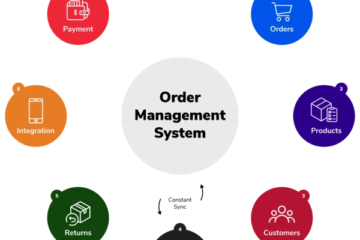In today’s cloud-driven ecosystem, managing identities securely and seamlessly is crucial for efficient application integration. Managed Service Identity (MSI) has emerged as a robust solution, offering a streamlined approach to handle authentication and authorization complexities. This article explores how MSI enhances application integration by simplifying identity management across various platforms.
What is Managed Service Identity (MSI)?
Managed Service Identity (MSI) is a feature provided by cloud platforms like Azure and AWS, designed to simplify the management of identity credentials for applications running in the cloud. Instead of manually managing credentials, MSI allows applications to obtain tokens securely without embedding sensitive information.
How MSI Works
MSI works by providing applications with automatically managed identities that are scoped to specific resources within the cloud environment. These identities are assigned dynamically and can be used to authenticate the application to cloud services such as Azure Key Vault, Azure SQL Database, or AWS services, depending on the platform.
Benefits of Managed Service Identity

1. Enhanced Security
One of the primary benefits of MSI is enhanced security. By eliminating the need to hardcode credentials or manage secrets manually, MSI reduces the risk of accidental exposure or unauthorized access. Applications authenticate securely using tokens obtained through MSI, which are managed and rotated automatically by the cloud platform.
2. Simplified Development Process
Integrating applications with various cloud services often involves complex authentication mechanisms. MSI simplifies this process by providing a consistent and straightforward way to obtain tokens for authentication. Developers can focus more on application logic and less on managing credentials, accelerating the development cycle.
3. Seamless Integration with Cloud Services
MSI facilitates seamless integration with a wide range of cloud services and APIs. Applications can securely access resources such as databases, storage, and messaging services without handling credentials explicitly. This capability not only improves operational efficiency but also ensures compatibility across different cloud environments.
4. Scalability and Flexibility
As organizations scale their cloud infrastructure, managing credentials manually becomes impractical and error-prone. MSI scales with the application workload, providing identities dynamically as needed. This scalability ensures that applications can seamlessly access resources regardless of the size or complexity of the deployment.
5. Compliance and Auditing
For organizations operating in regulated industries, compliance with security and auditing standards is paramount. MSI helps meet these requirements by providing centralized identity management and audit trails for access to sensitive resources. This capability simplifies compliance efforts and enhances transparency in access control practices.
Use Cases of Managed Service Identity

1. Enterprise Applications
Large enterprises with diverse cloud environments benefit significantly from MSI by standardizing identity management practices across different platforms and services. This approach improves governance, reduces complexity, and strengthens security posture.
2. DevOps and Continuous Integration/Continuous Deployment (CI/CD)
In DevOps practices, where automation and speed are critical, MSI enables secure authentication and authorization for automated processes. CI/CD pipelines can securely access deployment resources without exposing sensitive credentials, ensuring reliable and secure application delivery.
3. Microservices Architecture
In microservices architectures, where applications are composed of multiple independent services, MSI provides a unified identity management solution. Each microservice can obtain its identity dynamically, ensuring secure communication and access to shared resources within the ecosystem.

Conclusion
Managed Service Identity (MSI) represents a significant advancement in cloud identity management, offering numerous benefits for seamless application integration. From enhanced security and simplified development to scalability and compliance, MSI empowers organizations to embrace cloud-native practices with confidence. By leveraging MSI, businesses can streamline operations, improve resource utilization, and maintain robust security standards in today’s dynamic digital landscape.
In summary, adopting Managed Service Identity is not just about enhancing security and efficiency but also about enabling a more agile and resilient cloud infrastructure capable of meeting the demands of modern application integration.



